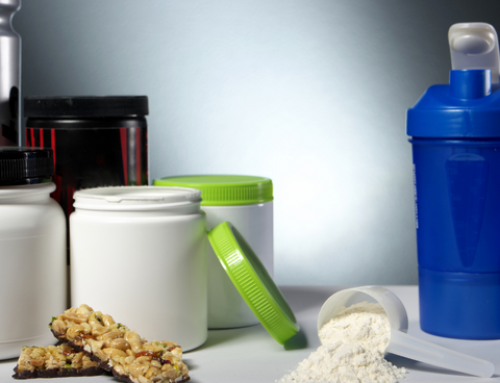Is Creatine Safe and Effective for Young Athletes?
Often advertised as conferring huge strength and performance benefits, creatine is a popular supplement for athletes and an understandably tempting choice. Proponents cite several studies that prove it is safe for the body. But is creatine safe for young athletes? Although creatine does have performance benefits for older and more mature athletes, young and still-growing high school athletes should first educate themselves on the product before beginning supplementation.
According to Liz Applegate, Oakland Raiders nutritionist, young athletes should be cautious about creatine. “We don’t know enough about its effects on younger athletes,” she says. “I’m always hesitant to acknowledge that it might be a benefit when we don’t know what it will do to their growth rates.”
Creatine monohydrate is a natural compound found in the body and in some foods, like steak. When consumed, it is converted into an energy source that’s used for explosive bursts of speed and strength lasting less than 10 seconds. This helps reduce fatigue and improve the quality of a workout. You may be able to perform extra reps or maintain perfect form longer, offering an added challenge to your muscles for increased muscle size and strength.
Studies have shown that creatine also improves muscles’ ability to contract to improve strength, and stimulates natural hormones that increase muscle size. Creatine also causes water retention. You may add weight when beginning a program, but it’s not solely from lean muscle gains. If you stop taking creatine, you will lose the added water weight within four weeks.
If you’re looking to add lean mass, first embark on an effective training program and a balanced nutrition plan. After adopting a solid plan, if you still want to try creatine, consult a trainer, nutritionist or doctor before beginning supplementation.
RECOMMENDED FOR YOU
Is Creatine Safe and Effective for Young Athletes?
Often advertised as conferring huge strength and performance benefits, creatine is a popular supplement for athletes and an understandably tempting choice. Proponents cite several studies that prove it is safe for the body. But is creatine safe for young athletes? Although creatine does have performance benefits for older and more mature athletes, young and still-growing high school athletes should first educate themselves on the product before beginning supplementation.
According to Liz Applegate, Oakland Raiders nutritionist, young athletes should be cautious about creatine. “We don’t know enough about its effects on younger athletes,” she says. “I’m always hesitant to acknowledge that it might be a benefit when we don’t know what it will do to their growth rates.”
Creatine monohydrate is a natural compound found in the body and in some foods, like steak. When consumed, it is converted into an energy source that’s used for explosive bursts of speed and strength lasting less than 10 seconds. This helps reduce fatigue and improve the quality of a workout. You may be able to perform extra reps or maintain perfect form longer, offering an added challenge to your muscles for increased muscle size and strength.
Studies have shown that creatine also improves muscles’ ability to contract to improve strength, and stimulates natural hormones that increase muscle size. Creatine also causes water retention. You may add weight when beginning a program, but it’s not solely from lean muscle gains. If you stop taking creatine, you will lose the added water weight within four weeks.
If you’re looking to add lean mass, first embark on an effective training program and a balanced nutrition plan. After adopting a solid plan, if you still want to try creatine, consult a trainer, nutritionist or doctor before beginning supplementation.










